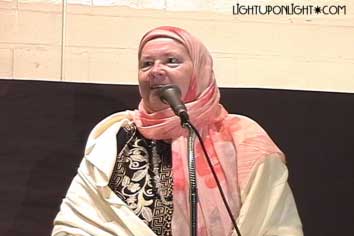According to Rahyafte (the missionaries and converts website):While the United Nations adopted a resolution proclaiming November 16 as International Day for Tolerance in 1996, the Quran which was revealed to Prophet Mohammed (PBUH) more than 1400 years ago promoted tolerance and supported equality among all human beings regardless of gender, race, and ethnicity.
“O mankind, indeed We have created you from male and female and made you peoples and tribes that you may know one another. Indeed, the most noble of you in the sight of Allah is the most righteous of you. Indeed, Allah is Knowing and Acquainted.” (Quran 49:13)
The above-mentioned verse covers three aspects: first, it deals with individuals, men and women, and can be understood as a call for gender equality.
Secondly, it deals with the existence of different races and tribes that can be interpreted as a call for racial equality.
And finally, it focuses on ethico-religious aspects, advising the believers to discern people by piety.
There are other verses throughout the holy text advising believers on religious tolerance.
“There shall be no compulsion in [acceptance of] the religion. The right course has become clear from the wrong. So whoever disbelieves in Taghut and believes in Allah has grasped the most trustworthy handhold with no break in it. And Allah is Hearing and Knowing.” (Quran, 2:256)
From the very beginning, freedom of religion has been guaranteed by Islam, in the meanwhile it is underscored that Islam is the final edition of divine faith and is superior to other faiths and ideologies as such.
Tolerance does not mean that we do not present the message of Islam to all Mankind. Islam teaches us to strive to present and convey the message of Allah to others in a decent way and to invite people toward the path of truth.
After that, it is totally up to them to accept or reject the invitation but we as Muslims are not allowed to impose our thoughts on people.
Quran prohibits coercion in matters of faith and belief. It speaks about the basic dignity of all human beings regardless of their race, color, language or ethnicity. The Shari’ah recognizes the right to life, property, family honor and conscience of all people.
“Obey Allah and obey the Messenger; but if you turn away – then upon him is only that [duty] with which he has been charged, and upon you is that with which you have been charged. And if you obey him, you will be [rightly] guided. And there is not upon the Messenger except the [responsibility for] clear notification.” (Quran 24:54)
“Allah says, and say, ‘The truth is from your Lord, so whosoever wants let him believe and whosoever wants let him deny’.” (Quran 18:29)
The verses mentioned above give an injunction not to coerce people, present the message to them in a decent and clear way, invite them to the truth and do your best in presenting and conveying the message of Allah to humanity, while it is totally up to them to accept or to reject it.
Indeed, Muslims are allowed to keep good relations with non-Muslims.
“Allah does not forbid that you be kind and just to those who did not fight against you on account of religion, nor drove you out of your homes. Surely Allah loves those who are equitable.” (Quran 60:8)

Quran also encourages followers of different religions to maintain peace rather than remaining in dispute.
“And argue not with the people of the Scripture (Jews and Christians), unless it be in (a way) that is better (with good words and in good manner, inviting them to Islamic Monotheism with His Verses), except with such of them as do wrong, and say (to them): “We believe in that which has been revealed to us and revealed to you; our Ilah (God) and your Ilah (God) is One (i.e. Allah), and to Him we have submitted (as Muslims).” (Quran 4:90)
While some argue that the purpose of jihad is to convert people to Islam, according to the Quran the real purpose of jihad is to remove injustice and oppression and stop aggression as Islam has zero tolerance for violation of the rights of other human beings.
In this regard, some might wonder why God punished the people of Prophet Nuh, the Thamud, the Lut and the people of Prophet Shu’aib and the Pharaoh and his followers.
The answer is found in the Qur’an itself. Those people were not punished simply because of their disbelief but because of their oppression of the righteous and because they stopped others to come to the way of Allah.
Nonetheless, religious freedom is part of God’s design. As stated in Quran, it could have been easy for Allah to force His Will, but He gave us free will instead; gave us choices. We must choose the right path or be accountable for the consequences.
Throughout Quran, Allah has explained to us the result of this choice. Either you submit to the One God and attain paradise or you reject Him and attain hell. But that has to be our choice. Likewise, the path we take must be our choice.
Sura Al-Kafirun (109), clearly explains how one should treat non-believers:
In the Name of Allah, the Most Beneficent, the Most Merciful
Say: “Oh, you who disbelieve!
“I do not worship that which you worship,
“Nor do you worship That Which I worship.
“Nor will I worship that which you have been worshipping,
“Neither will you worship That Which I worship.
“To you your religion and to me mine.”
The chapter clearly explains that you are free to choose whichever path you desire, so you should neither force a Muslim to worship what you worship; likewise a Muslim should not force his beliefs upon you: “To you your religion and to me mine.”
It is a clear statement of religious tolerance in Islam.
iqna




















